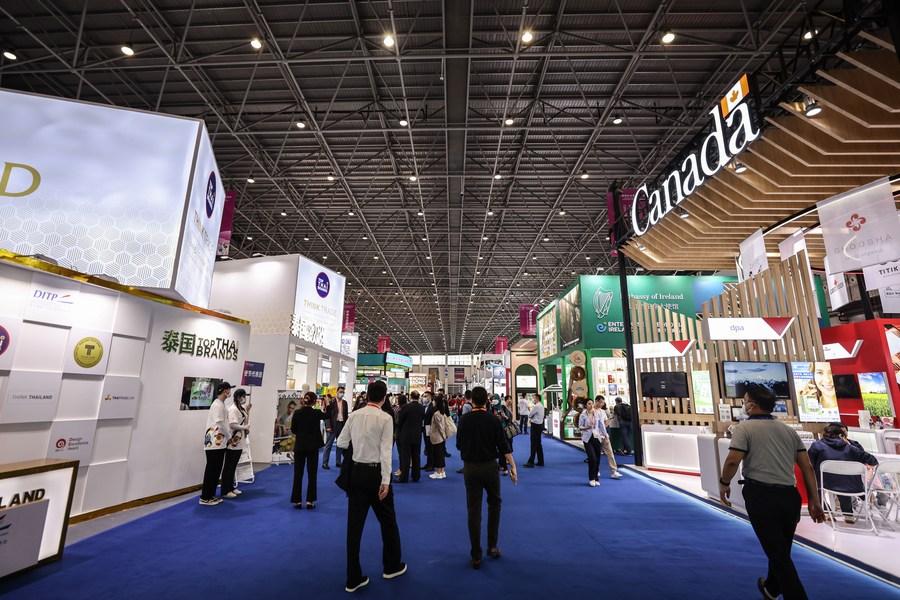By Moulik Jahan
The first Canadian minister to visit China in four years, Canada's Minister of Environment and Climate Change Steven Guilbeault departed for Beijing on August 26 to participate in discussions on battling climate crisis and protecting biodiversity.
U.S. climate envoy John Kerry also visited China for similar talks roughly a month ago.
Guilbeault is scheduled to take part in three days of discussions beginning August 28 at the annual meeting of the China Council for International Cooperation on Environment and Development.
"Climate change and environmental issues know no borders," he declared in a statement. "We cannot tackle these existential threats without engaging with a wide range of stakeholders and partners."
However, Guilbeault's visit has been denounced as "treason" by some in the Conservative opposition since it came after years of tense bilateral relations that had been made worse by Canada's 2018 arrest of a Chinese telecom's executive at the U.S. request.
Guilbeault's office highlighted that when Guilbeault and his Chinese counterpart, Huang Runqiu, co-hosted the United Nations Convention on Biological Diversity in Montreal in December, their bilateral relations were enhanced.
The visit is important for Canada-China bilateral relations as the visit by Guilbeault comes amid years of strained ties between Beijing and Ottawa, which should be strengthened and transformed positively. The natural consequence of the argument is that Canada should negotiate smooth bilateral relations with China to ensure mutual interest. Understanding one another's cultures, business practices, values, economic systems, governance architecture, and other factors important to a win-win agreement should be a priority for both parties. Conflicts and misunderstandings would be avoided or at least reduced with this awareness.

Visitors pass the booth of Canada during the third China International Consumer Products Expo in Haikou, capital city of south China's Hainan Province, April 10, 2023. [Photo/Xinhua]
The most recent mentions of a purported new "golden era" in bilateral relations date back to 2015, the year Justin Trudeau gained office. At first, it was anticipated that discussions about a free trade deal would start. They failed, however, due to China's resistance to Canada's "progressive" trade policy. That setback was minor in comparison to the consequences of Meng Wanzhou, Huawei's chief financial officer at the time, being detained on December 1, 2018 at the Vancouver International Airport, pursuant to a warrant from the U.S. Department of Justice.
The condition of China-U.S. ties is the main factor. The development of commercial ties between Canada and China was relatively simple while China-U.S. relations were cordial, such as when China joined the World Trade Organization in December 2001. Canada, however, has little room to maneuver in the current situation, where China and the U.S. are locked in a trade and technology "war." One example is the eventual exclusion of Huawei and Zhong Xing Telecommunication Equipment Company from Canada's 5G networks, which was announced by the Canadian government in May 2022.
But Canada's strategy with China must first and foremost be based on Canada's own national interests, not those of other countries. This calls for a thorough comprehension of how China affects its national interests as well as an acceptance that its interests won't always be perfectly aligned with those of the United States. French President Emmanuel Macron's model of cultivating bilateral connections might serve as a good example.
There are no ongoing geopolitical tensions between China and Canada. For many years, the two countries had good relations and cooperated in trade and economy. However, former U.S. President Donald Trump utilized sanctions and other coercive measures to stop China from developing its technology, and he included Canada in the conflicts that were fabricated in the White House.
Instead of playing into Washington's zero-sum game, Ottawa should take a more objective and long-term approach in dealing with its relations with China, its second-largest trading partner. More normalcies in the two countries' relations are in both of their best interests; thus both should put their efforts into advancing their partnership.
Moulik Jahan, a special commentator on current affairs for CGTN, is a strategic and security affairs analyst.

 中文
中文



